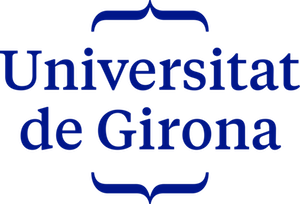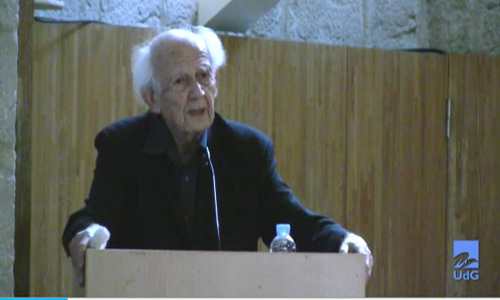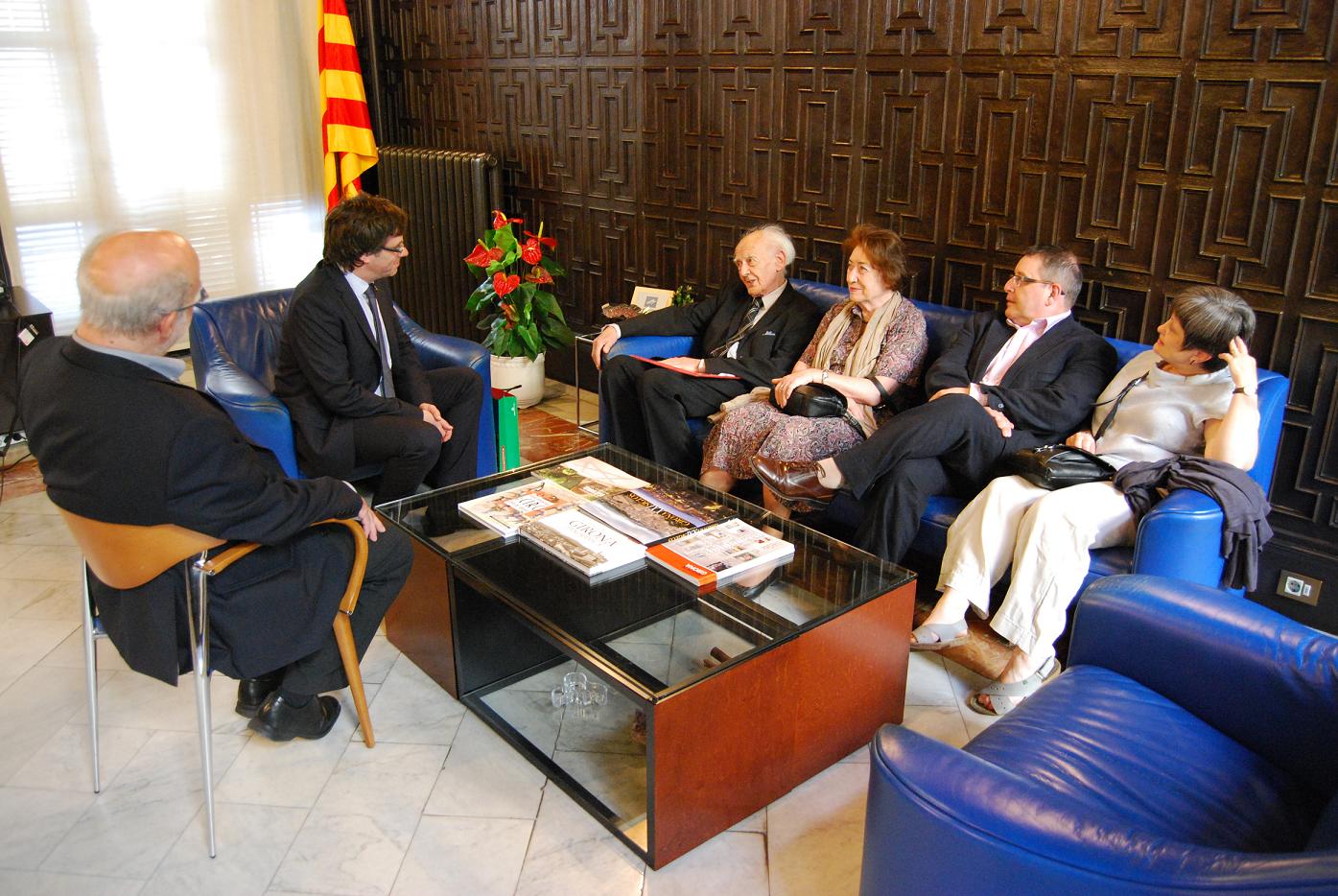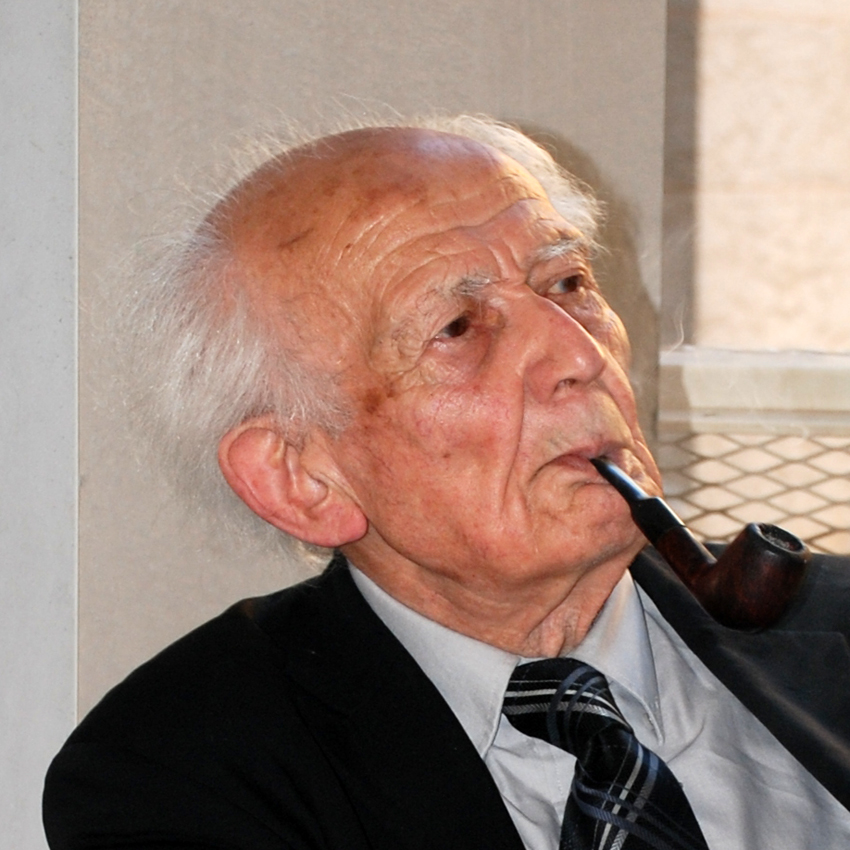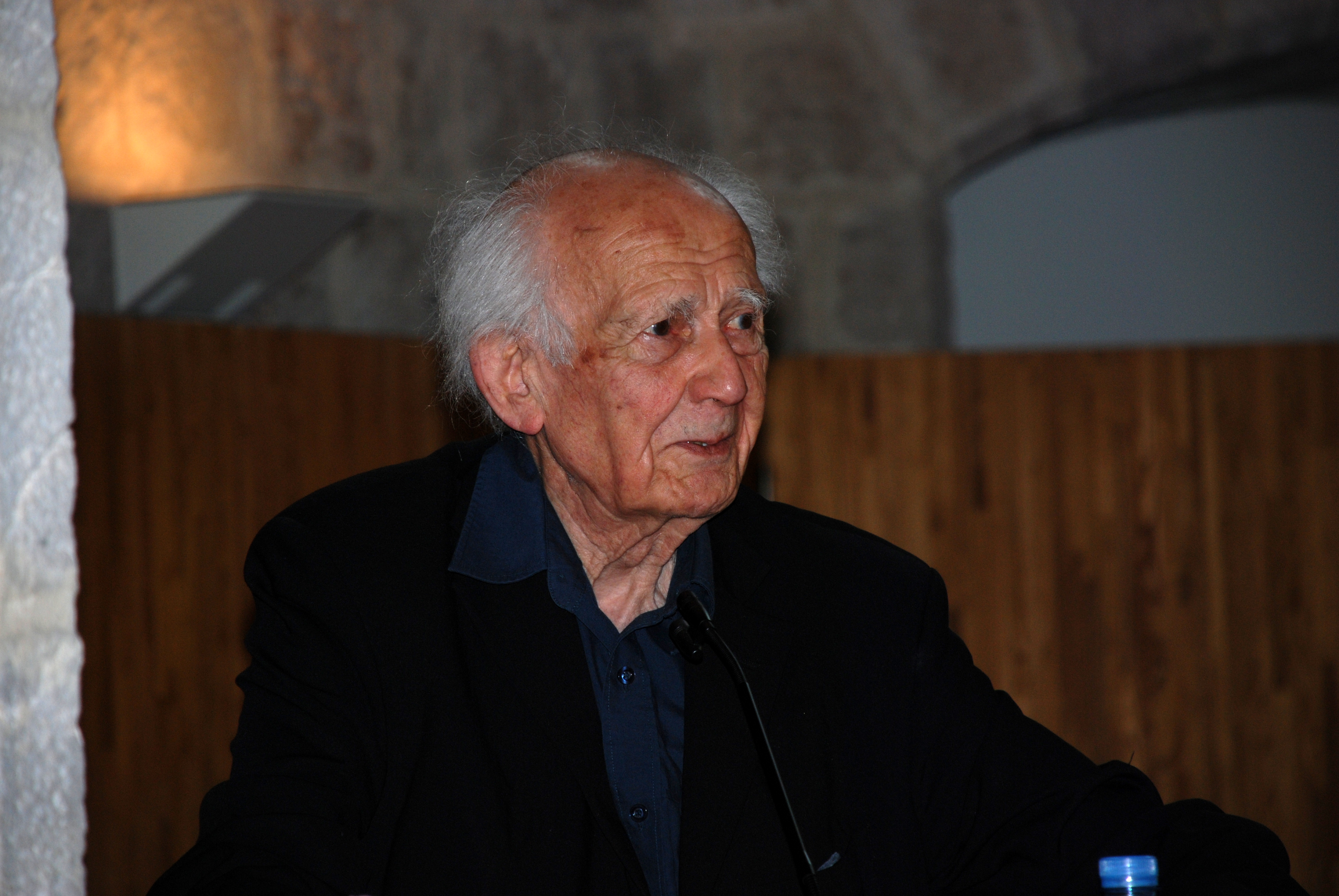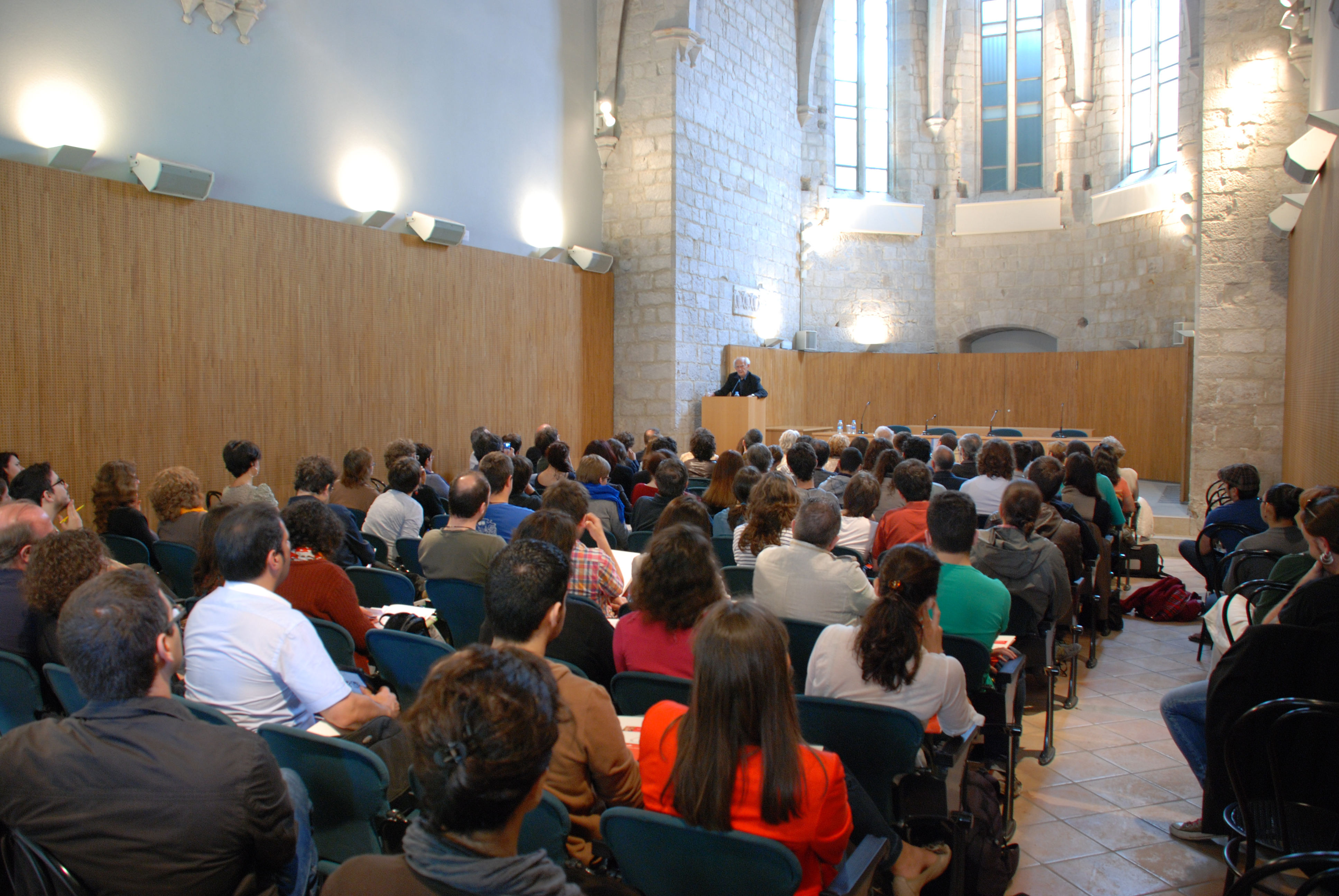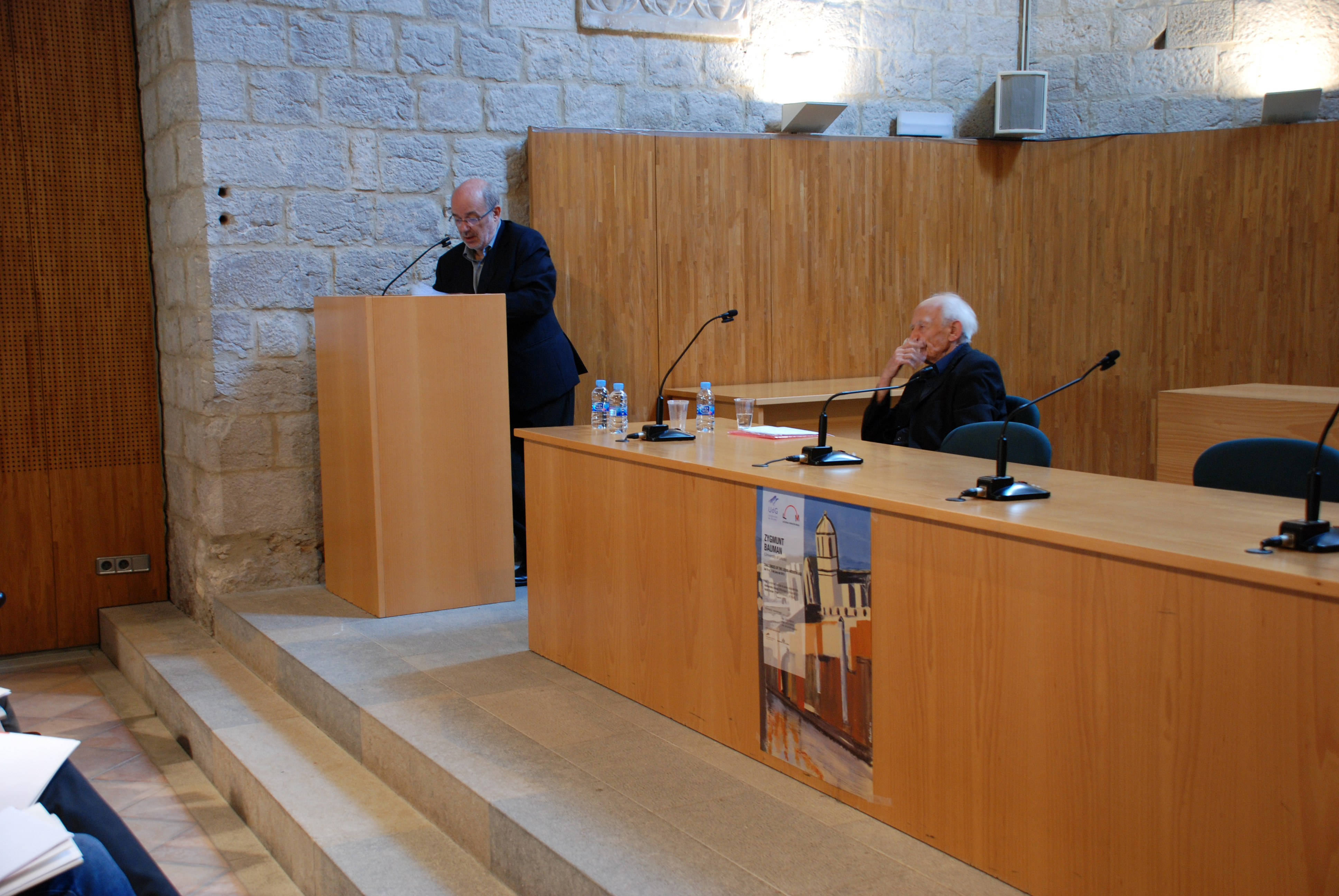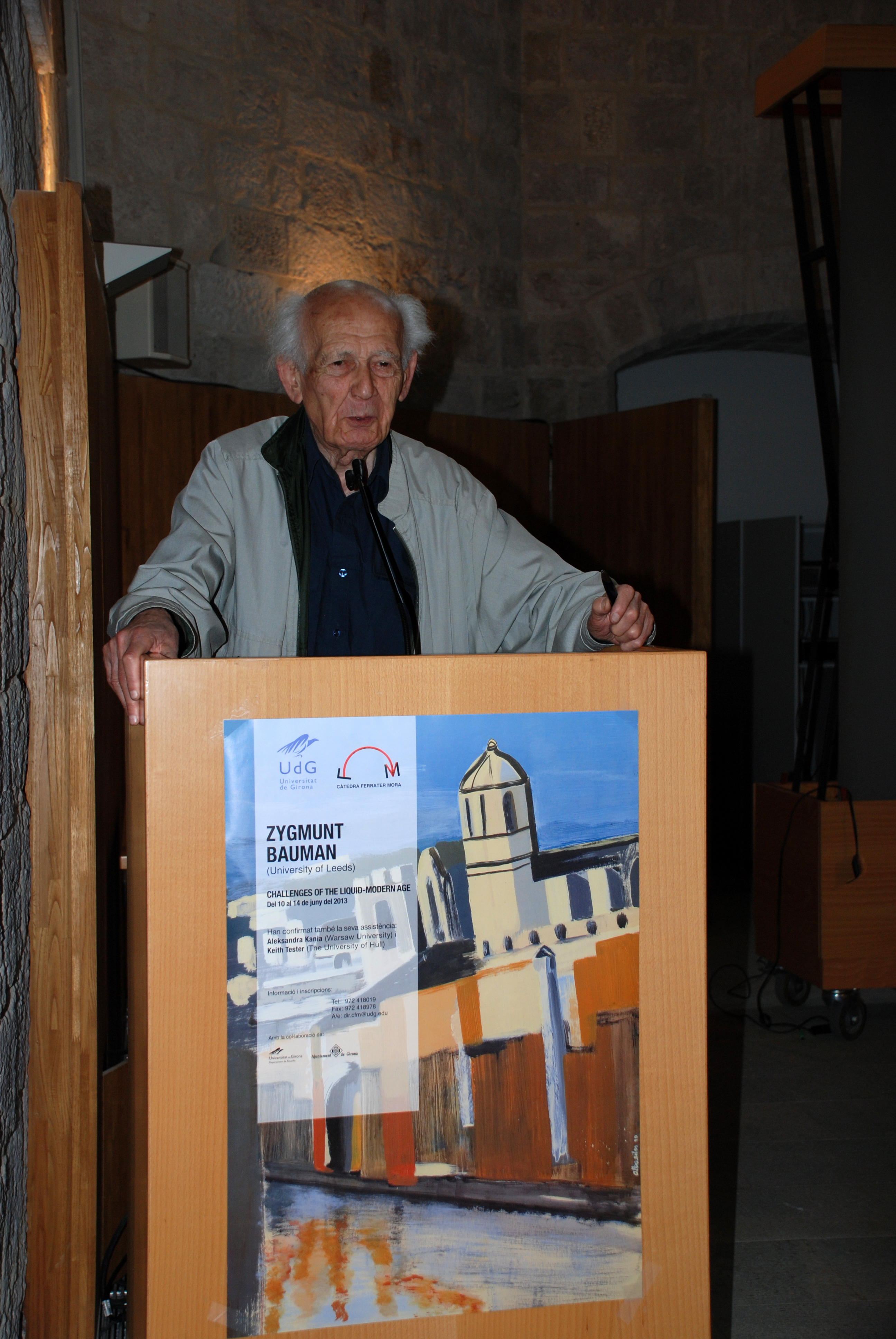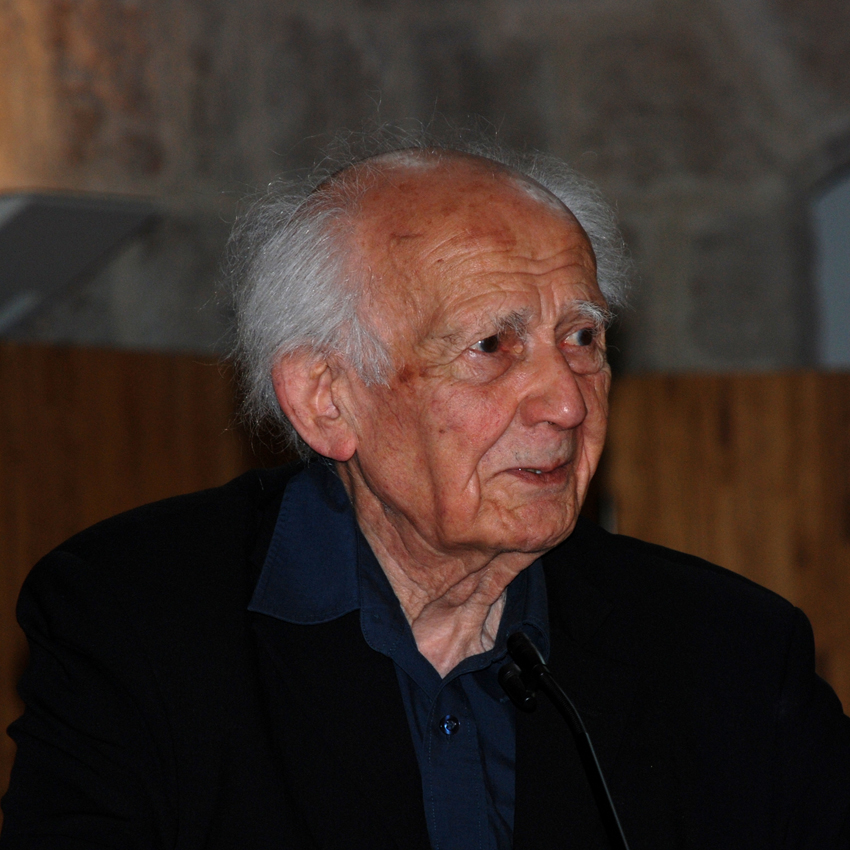
Zygmunt Bauman
Zygmunt Bauman (1925-2017) was one of the most influential social thinkers of the late twentieth and early twenty-first centuries. His work, spanning nearly five decades, denies arbitrary disciplinary limitation boundaries within the arts, humanities and social sciences.
Bauman was an extraordinarily productive scholar; his writings remain completely current and relevant both in his specialty, sociology, as well as in social and political theory, philosophy, ethics, art theory, media studies, cultural studies and theology. His analysis of the links between modernity, Nazism and postmodern communism gained him international acclaim. He has contributed to the development of social sciences by creating concepts such as the ‘theory of liquid modernity’, which defines the present times as an era of change and constant movement in which man is an orphan of consistent references and where concepts are more unstable than ever before. Bauman’s theories have exerted a major influence on the anti-globalization movements.
The period Bauman dedicated to ‘liquid modernity’ has been exceptionally influential both in and outside universities, and his contributions to the challenge of ‘rethinking global society’ are as valuable as ever.
Programme
CHALLENGES OF THE LIQUID-MODERN AGE
From June 10th to 14th, 2013
- Living in times of interregnum
- Living in the era of diasporization
- Living in the era of digital culture
- Living in a society of consumers
- Living with dreams, fears and hopes
Programme in pdf here.
Videos
Click here to watch Prof. Bauman’s lectures.
You can also watch the conference that on Tuesday, June 11, Bauman offered at the Cultural Center La Mercè with the title “Europe - Birthday or Death Agony?”.
Invited specialists
By indication of Prof. Bauman, the below mentioned were also invited to participate: Keith Tester (University of Hull, UK) and Aleksandra Kania (Warsaw University, Poland).
Conferences:
Tuesday, 11 June: Living in the era of diasporization
Prof. Aleksandra Kania (Warsaw University)
Wednesday, 12 June: The English Riots of August 2011: A Symptom of Interregnum?
Prof. Keith Tester (The University of Hull)
Thursday, 13 June: Fear, Panic and Media: The Case of Fukushima
Prof. Keith Tester (The University of Hull)
Friday, 14 June: Living with dreams, fears and hopes
Prof. Aleksandra Kania (Warsaw University).
Press Releases
- Bauman, el de la modernitat líquida, impartirà un seminari a la UdG (Diari de Girona, 26 Marchl 2013)
- Sociòleg sòlid en el líquid, Imma Merino (El Punt-Avui, 7 June 2013)
- Bauman, Josep Maria Fonalleras (El Periódico, 10 June 2013)
- Bauman i els reptes Moderns (El Punt-Avui, 11 June 2013)
- Bauman reflexionarà sobre l’Europa en crisi avui al centre La Mercè (Diari de Girona, 11 June 2013)
- Zygmunt Bauman: “Si fem el salt cap a l’estat-nació de la humanitat serà un èxit”, Daniel Bonaventura (Diari de Girona, 12 June 2013)
- Bauman defensa que una Catalunya independent sigui de la Unió Europea (Diari de Girona, 13 June 2013)
- Afrontar les pors sense precedents, Mònica Terribas (ARA, 14 June 2013)
- Modernitat i mediocritat, Josep-Maria Terricabras (ARA, 15 June 2013)
- Un guia del pensament actual a Girona (Editorial, Diari de Girona, 16 June 2013)
- Zygmunt Bauman defiende que una Catalunya independiente pueda ser miembro de la UE (La Vanguardia, 17 June 2013)
- Bauman a la UdG, Josep-Maria Terricabras (Engega, 23 October 2013)
- Mor Zygmunt Bauman, el filòsof creador del concepte de la «modernitat líquida» (Diari de Girona, 10 January 2017)
- Bauman a Girona, by Daniel Bonaventura (Diari de Girona, 10 January 2017)
